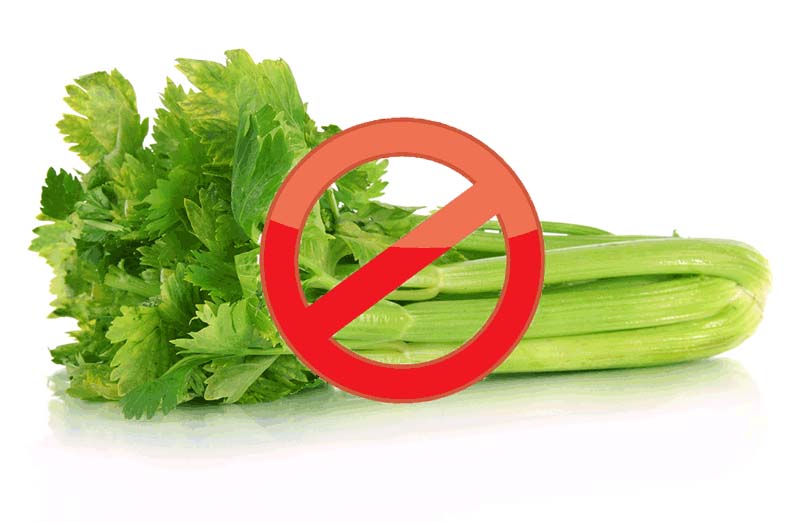Gastric Sleeve (sleeve gastrectomy) surgery is quickly becoming the preferred surgery for weight loss.
Gastric sleeve surgery is quick, the results are impressive and the complication risk is low, less than 1% serious complication rate in the first 30 days after surgery (Safety and Effectiveness of Newer Bariatric and Metabolic Surgery Procedure).
Your Liver Prior To Surgery
Your stomach is located just to your left of your liver. To access your stomach for most bariatric procedures, your surgeon will use a liver retractor. This is a device that lifts the liver up and out of the way so your surgeon can safely operate on the stomach without the liver getting in the way.

You have Non-Alcoholic Fatty Liver Disease
You probably don’t know it, but you have fatty liver disease. If you don’t and you’re morbidly obese, you’re lucky. Fatty liver disease is when fat cells accumulate in and around your liver cells. This causes the liver to function poorly.
It also increases the size of your liver. A larger liver makes gastric sleeve surgery much more difficult and increases the risk of complications.
I’ve witnessed a handful of cases where the surgeon decides that the liver is so large that they cannot perform surgery safely. The surgery either then becomes an open procedure (non-laparoscopic) or they close and cancel until the patient decides to follow their 2 week pre-op diet.
2 Week Pre-op Diet
Why do you need to be on such a strict diet before gastric sleeve surgery? Since you are overweight, so is your liver. And, as mentioned above, a large liver increases your surgical risk.
However, your liver can very quickly shrink in size if a strict diet is followed. This makes your surgery safer, you healthier, and prepares you for your diet the first few weeks after surgery.
Typical 2 Week Pre-Op Diet
You should always follow your surgeon’s recommended diet 2 weeks prior to surgery. Most 2 week pre-op diets recommend:
- Increase your protein consumption
- Eat lean meats
- Lower your carbohydrate consumption
- Avoid breads, pasta, cereals, rice, etc.
- Eliminate Sugars
- Eliminate candy, desserts, juices, sodas
The list below is a typical diet two weeks before gastric sleeve surgery.
- Breakfast
- Protein Shake – get a high quality protein shake
- Many people like High Protein Meal Replacement from Bariatric Advantage because it has 27 grams of protein and added fiber to help you feel full longer.
- Lunch
- Vegetables and Lean Meat
- Dinner
- Vegetables and Lean Meat
- Snacks
- You can have a healthy, low carbohydrate snack in-between meals.
- Nuts, berries, vegetables, small salad with oil and vinegar, etc.
- Fluids
- Stay hydrated. This will help curb your hunger.
- You can typically drink anything sugar free and low in calories.
Remember, it’s very important to stick to your two week pre-op diet. This shrinks your liver, decreases your risk of complications and makes the surgery quicker and easier for your surgeon.
2 Days Prior to Surgery
Some surgeons will recommend you stop the following two days prior to surgery.
- Carbonated beverages
- Caffeine
Most surgeons will recommend you adhere to a strict clear liquid diet starting two days prior to your surgery. Clear liquids will include broth, sugar free Jell-O, sugar free popsicles, water and possibly one protein shake each day. Again, follow your surgeon’s instructions.
After Gastric Sleeve Surgery Diet
You’ve made it past surgery and you’re on your way to a healthier life.
While the two-week diet was important reduce your risk of surgical (intraoperative) complication, the week 1 to 4 post-op diet will help prevent post-op complications.
The first few weeks after surgery, you will experience frequent irritability and it’s not uncommon to second guess your decision to have surgery.
The very extreme diet after your sleeve gastrectomy may seem like your surgeon is being overly cautious. It is utterly important that you follow their instructions to the ‘T.’
Cheating on your post-op diet can cause diarrhea, dehydration, constipation, bowel obstruction, or a very serious gastric leak. If you need more motivation to follow your post-op diet, this article will help.
Below is a typical diet after gastric sleeve surgery for weeks 1 to 4.
Week 1 – Clear Liquids Only
 In week one you are limited to clear liquids only. This sounds tough. And it is tough. However, most patients have very little desire to eat. The hunger hormone ghrelin is almost non-existent after surgery.
In week one you are limited to clear liquids only. This sounds tough. And it is tough. However, most patients have very little desire to eat. The hunger hormone ghrelin is almost non-existent after surgery.
The part of the stomach that produces the majority of ghrelin is removed during surgery.
Make sure all items listed below are sugar free.
- Water
- Broth
- Jell-O
- Decaf tea
- Decaf coffee
- Sugar free Popsicles
- Sugar free drinks that are not carbonated
- Clear liquid protein drinks (if recommended by your bariatric doctor’s office)
You should avoid:
- Carbonated beverages
- Very sweet beverages
- Sugar
- Caffeine
Week 2 – Full Liquid Diet With Protein
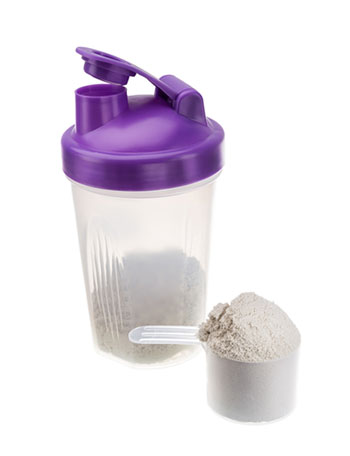 During week two you may start to feel some hunger pains. Continue to stick to your surgeon’s recommended diet. Your diet may include all items from week 1 plus:
During week two you may start to feel some hunger pains. Continue to stick to your surgeon’s recommended diet. Your diet may include all items from week 1 plus:
- Protein powder mixed with a sugar free non-carbonated clear liquid.
- Sugar free pudding.
- Soup with soft noodles.
- Non fat yogurt.
- Carnation instant breakfast. Look for the sugar free option.
- Very thin creamed soups. No chunks.
- Sugar free sorbet.
- Very watery hot oatmeal. Check the sugar content.
- Diluted no-sugar added juice.
- Sugar free, nonfat ice cream
- Thinned applesauce. Check sugar content.
Week 3 – Soft Pureed Foods
During week three after gastric sleeve surgery,the good news is that you can start adding some real food into your diet, albeit pureed.
You still need to be careful to limit sugars and fats. The goals for week 3 include:
- Get your 60 grams of protein per day
- Eat slowly
- Introduce new foods one by one.
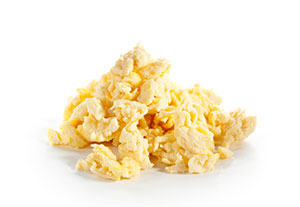 Food may taste differently and will be tolerated differently than they were before surgery. You may find that dairy is harder to digest. It’s recommended that you introduce new foods slowly.
Food may taste differently and will be tolerated differently than they were before surgery. You may find that dairy is harder to digest. It’s recommended that you introduce new foods slowly.
Give your body some time to react to each new food. By doing this you’ll be able to identify foods that are causing gas, stomach upset, and/or diarrhea.
The foods listed below are typically acceptable for week three after surgery.
- 1 protein shake per day. You can now blend them with yogurt or non-fat milk.
- Almond milk or coconut milk makes a great protein shake.
- Hummus
- Cottage cheese (low fat)
- Soft cereals – Let your cereal sit in the non-fat milk until it’s soft.
- Soft vegetables – steam or boil them until they are soft.
- Soft cheeses – limit these, they are typically high in fat.
- Ground chicken or beef. Add some beef or chicken stock to keep the meat soft.
- Soups
- Scrambled eggs – these are a great source of protein.
- Soft (steamed) fish. Remember to chew well.
- Canned tuna and salmon (you can add low fat mayo). Great source of protein.
- Mashed fruit. Bananas, avocados, and canned fruit (watch sugar content).
You should avoid the following foods:
- While smoothies are ok, limit their sugar content.
- Sugar
- Starchy foods like pasta, rice and bread.
- Fibrous vegetables like celery, broccoli, asparagus, raw leafy greens.
Week 4 – Introducing Foods!
You’ve followed your diet up to week four. Now it’s time to start introducing real foods.
Your sleeve and stomach are still sensitive, so go slow and remember to chew each bite thoroughly. You’re done with pureed foods, but you should continue to look for softer versions of food during this week.
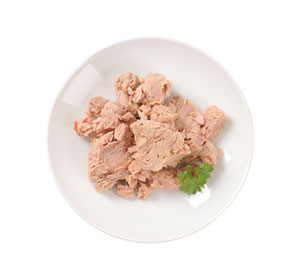 Continue your daily protein shakes
Continue your daily protein shakes- Introduce chicken and beef very slowly. Ensure you chew thoroughly.
- Any type of fish.
- Fruits
- Vegetables (it’s still recommended that you cook these to soften them a bit).
- Sweet Potatoes
- Mashed and baked potatoes.
- Cereal
- Caffeine can be introduced. It’s recommended that you limit this.
You should avoid the following foods in week four:
- Sodas
- Fried foods
- Fibrous vegetables (i.e. celery and asparagus)
- Sugary drinks
- Candy
- Dessert
- Pastas and other high carbohydrate, low nutrient foods (pizza).
- Whole milk and other whole milk dairy foods.
- Nuts
Week 4 Healthy Snacks
While it is recommended that you only eat 3 small meals each day and hydrate in-between meals, you may need a small healthy snack. If your surgeon approves this, the items below make healthy snacks.
- Hummus with rice crackers or softened (boiled and cooled) baby carrots.
- Hard boiled egg.
- Quarter cup of oatmeal.
- Quarter of a baked sweet potato (or microwaved)
- Banana
- Strawberries or fresh fruit.
Week 5 And Beyond
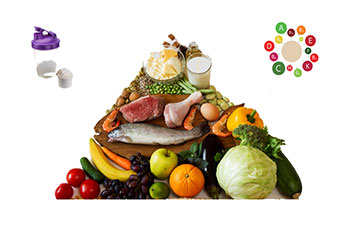 Continue to introduce foods one by one to see how well they are tolerated. Watch out for constipation, diarrhea, and upset stomach.
Continue to introduce foods one by one to see how well they are tolerated. Watch out for constipation, diarrhea, and upset stomach.
- Eat three small meals every day.
- Hydrate throughout the day.
- Stop drinking fluids before meals and wait at least 30 minutes after meals to start drinking again.
- Avoid snacking. If you do, choose a nutrient-dense food (fruit, vegetable, nuts).
- Take your recommended daily vitamins.
- Ensure you get 60 grams of protein.
- Supplement daily with a protein shake.
- Incorporate exercise into your daily routine. Make it a habit.
- Avoid sodas.
- Prepare for bad days. How will you cope when you are in a difficult situation?
- Find an accountability partner. Go to a support group and make friends that you can call.
6 Tips – Healthy Eating After Gastric Sleeve Surgery
- Choose foods that are nutrient dense. Bread is not nutrient dense. An apple, banana, fish, etc. are nutrient dense foods.
- Do not drink your calories. It won’t fill you up and most caloric drinks are filled with sugar.
- Expect an emotional roller-coaster. Don’t let food be your comfort. Create a plan.
- Chew your food thoroughly and take your time eating.
- Plan what you will eat if you’re going out. Ask for half the portion size at restaurants. You may get a discount and you won’t be tempted to overeat.
- Make water your new best friend. Drink it regularly throughout the day. Buy a reusable 64 oz bottle that you can carry to work with you. Make sure you finish the entire bottle each day. But remember not to drink with meals (this helps prevent stretching your pouch).
Conclusion
Gastric sleeve surgery is a life-changing procedure. The surgery makes it easier to lose weight which makes it easier for you to get out and get moving. Even intense exercise won’t help you outrun your fork. A healthy pre-op diet ensures a safe recovery and a proper post-op diet puts you on the path for long-term success.
We recommend checking out our Complete Guide to Gastric Sleeve Surgery. Ever wonder what you’ll weigh after gastric sleeve surgery? Check out our post-op gastric sleeve calculator.

